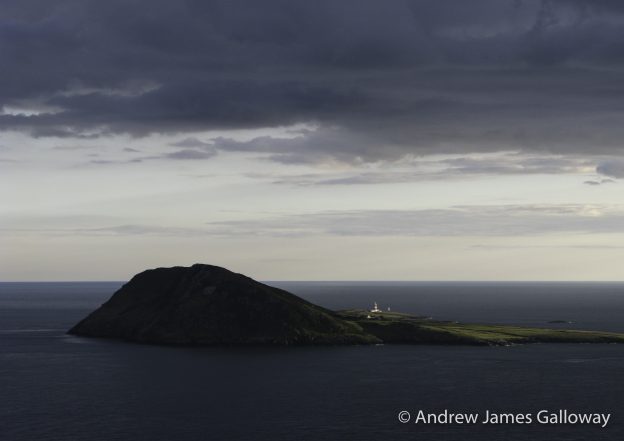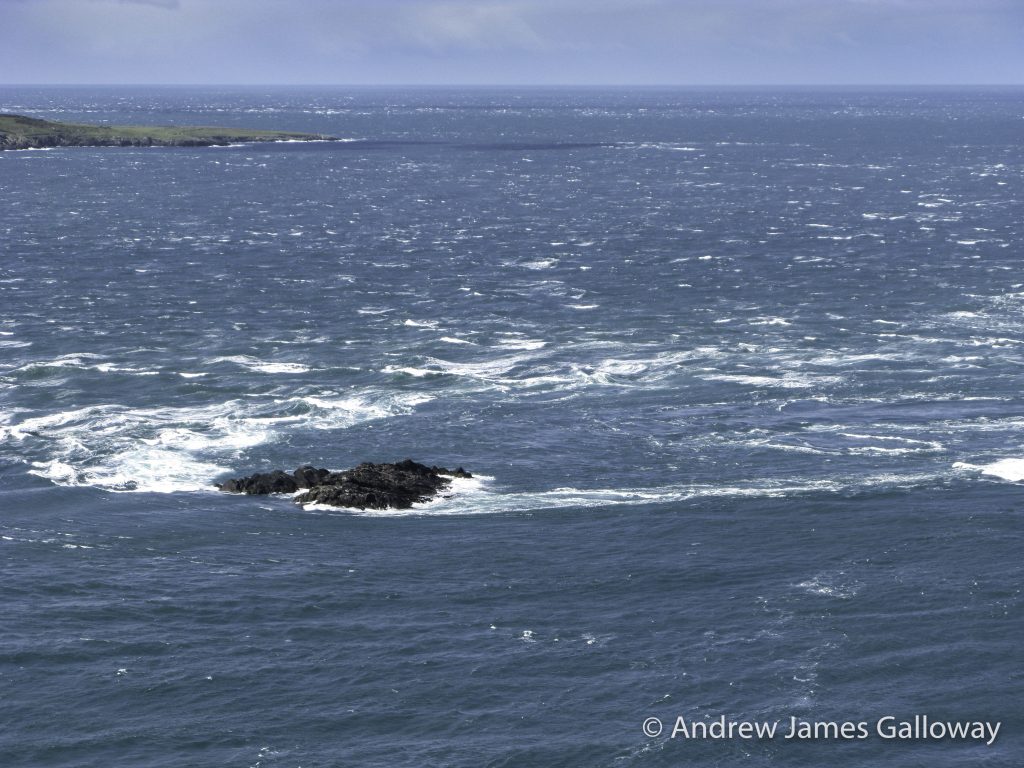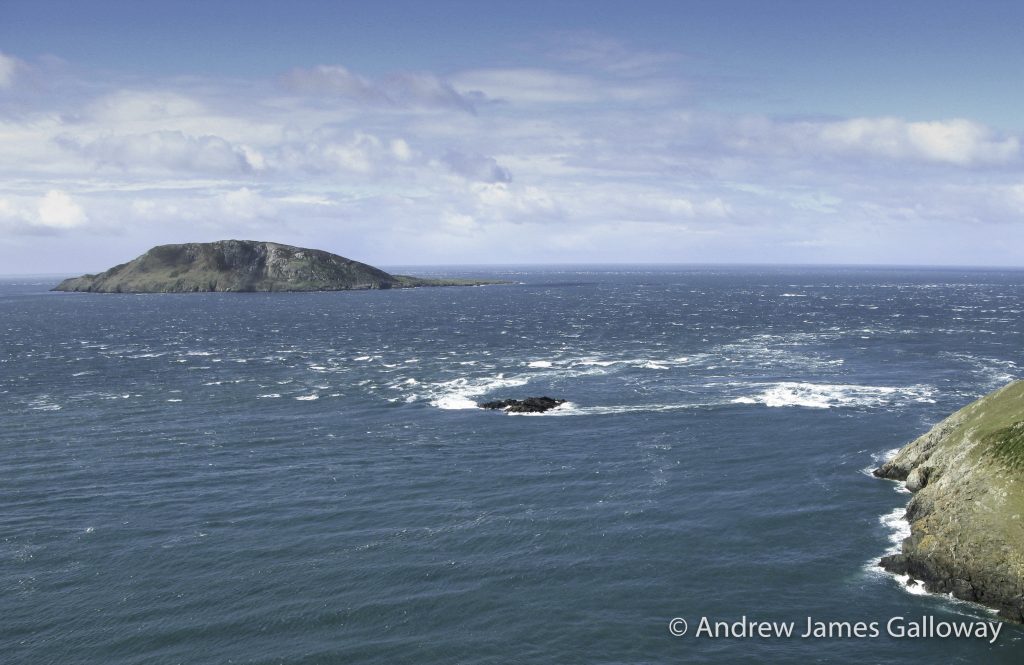Thoughts and images inspired by the poem Pilgrimages by R S Thomas. #adventbookclub
There is an island there is no going
to but in a small boat the way
the saints went, travelling the gallery
of the frightened faces of
the long-drowned, munching the gravel
of its beaches.
The tides in Bardsey Sound/Swnt Enlli are notorious. Between Pen y Cil and the island of Bardsey, known as Ynys Enlli in Welsh, the seabed rises up. In places it breaches the water’s surface to form clusters of treacherous reefs, such as the black rocks of Carreg Ddu. During the tidal flood, water is forced through the sound, up and over the elevated seabed, so that the surface of the sea is higher to the east than to the west. In order to maintain equilibrium the water rushes through the sound, reaching speeds of up to eight knots and creating standing waves that can be several feet in height. Being caught up in this maelstrom in a small sixth century wooden boat would have been terrifying, no doubt. Thus Porth Neigwl became known in English as Hell’s Mouth.
As Vicar of St Hywyn’s Church, Aberdaron, this was a landscape, a seascape with which RST was very familiar, within which he saw the legacy of the twenty thousand saints who journeyed to Ynys Enlli and did not return. In the company of these saints RST undoubtedly saw himself as a twentieth century pilgrim making his journey across the post-Freudian seascape of the psyche, wherein he sought God. “Was the pilgrimage/ I made to come to my own/ self.” The narration of this journey in his poems defines RST as a twentieth century modernist, in the intertextual company of poets such as T S Eliot, W H Auden and Dylan Thomas.
Although the poems of RST can sometimes seem dark and impenetrable, there is often a subtle wit to his choice of language. As Carys Walsh points out in her book Frequencies of God, the phrase “munching the gravel/of its beaches” from Pilgrimages is likely a reference to the book of Lamentations.
He has broken my teeth with gravel;
he has trampled me in the dust.
Lamentations 3:16
But RST is also, no doubt with a cheeky wink, making reference to the following passage from Under Milk Wood written by his long-dead contemporary Dylan Thomas.
never such seas as any that swamped the decks of his S.S.
Kidwelly bellying over the bedclothes and jellyfish-slippery
sucking him down salt deep into the Davy dark where the fish
come biting out and nibble him down to his wishbone, and
the long drowned nuzzle up to him.
We have already seen reference to the imagery of this passage in the poem This to do. Imagery and themes are cyclical in RST’s poetry, as no doubt he experienced them in his exploration of God. In the second stanza of Pilgrimages RST contemplates again the idea of the timeless moment.
There is no time on this island.
The swinging pendulum of the tide
has no clock; the events
are dateless
This imagery once again calls to mind T S Eliot’s “history is a pattern of timeless moments.”
We know for sure that RST was familiar with Eliot’s works as he made reference to them in his personal letters.
RST lived in the company of all the saints, and the poets, and saw himself as a fellow pilgrim in the journey towards God. What I see in the cyclical imagery of his poems is a growing awareness that the origin of the pilgrim’s journey is God and the destination is God.
This phrase from Little Gidding is now quoted so often it has become a cliché, but for sake of completion, I quote it again.
We shall not cease from exploration And the end of all our exploring Will be to arrive where we started And know the place for the first time.
Out of necessity life involves a physical journey. Undoubtedly, there are places we encounter along the way, suspended in place and time, such as Ynys Enlli, that are portals to an inner journey. But it is through this inner journey that we are ultimately reconciled to God.
#adventbookclub is using “Frequencies of God” by Carys Walsh and you can support the publisher by buying it here: https://canterburypress.hymnsam.co.uk/books/9781786220882/frequencies-of-god.
You can find the Advent Book Club on Twitter and Facebook, and you are welcome to join in with thoughts and comments. https://www.facebook.com/groups/1220319721395793



